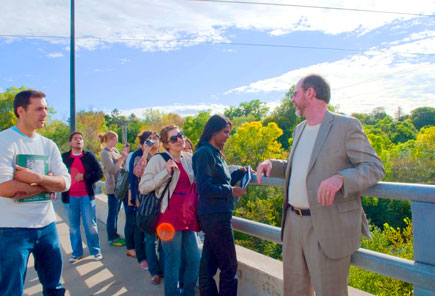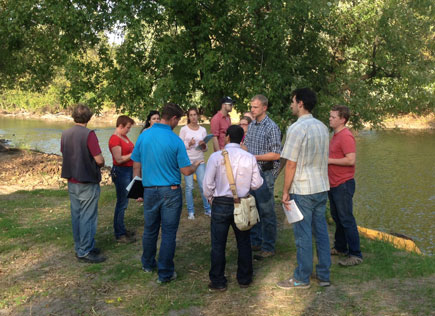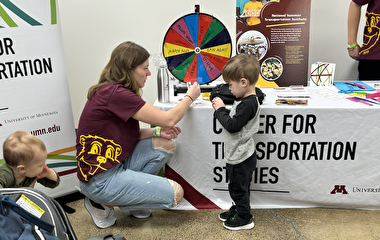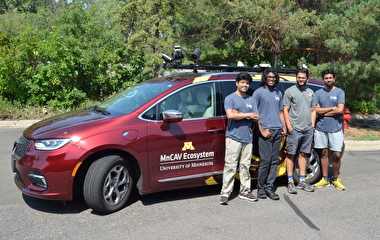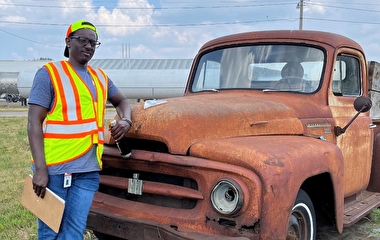MacDonagh, adjunct faculty in Architecture. Photo: CURA
Hundreds of U of M students will gain real-world experience while helping Carver County meet its sustainability goals under this year’s Resilient Communities Project (RCP).
RCP is an initiative supported by the U’s Center for Urban and Regional Affairs (CURA) that organizes yearlong partnerships between the University and Minnesota communities, matching graduate and undergraduate students to sustainability-related projects identified by the chosen community.
“Carver County and its partners are very pleased to be selected for this partnership with the University of Minnesota,” says Carver County board chair Randy Maluchnik. “The county’s proposal leverages long-standing relationships between partner agencies and communities in Carver County to address diverse challenges that result from the growth we are experiencing. The results University of Minnesota students will produce through this partnership will benefit our community for years to come.”
quality technician for Carver County. Photo: CURA
Each academic year, RCP chooses a city or county partner through a competitive request-for-proposal process. The program’s goal is to provide the community with efficient access to the resources and expertise of the University, offer students a professional opportunity to apply their knowledge and skills to a real-world project, and provide faculty with ready-made applied-learning opportunities for the classroom.
This year’s partnership with Carver County will include participation by three cities, the county community development agency, the school district, and the regional transit provider. More than 30 community-identified projects will be matched with dozens of courses and about 450 students across a range of academic disciplines, from architecture, planning, and engineering to business, environmental sciences, and the humanities.
Transportation-related projects will include enhancing bike and pedestrian facilities near park-and-ride locations, developing a bicycle and pedestrian traffic count program, and creating safe routes to schools. Several CTS Scholars are involved: Carissa Slotterback (Humphrey School of Public Affairs) is the RCP faculty advisor, and David Levinson (Department of Civil, Environmental, and Geo- Engineering) and Greg Lindsey (Humphrey School) are incorporating the program and the projects into their courses.
“All of the work is happening in close collaboration with our community partner staff and often engages other community stakeholders,” says Mike Greco, RCP director. “This engagement helps ensure that work produced is relevant and has the potential to inform community decisions in the future. For example, one of the projects we did with our first partner, the City of Minnetonka, was about stormwater management. The students’ work influenced the city to reexamine [its] street sweeping program to improve water quality.”
The program previously has partnered with Minnetonka, North St. Paul, and Rosemount (see article in the December 2013 Catalyst).
For more information about the RCP–Carver County partnership, visit the RCP website.
